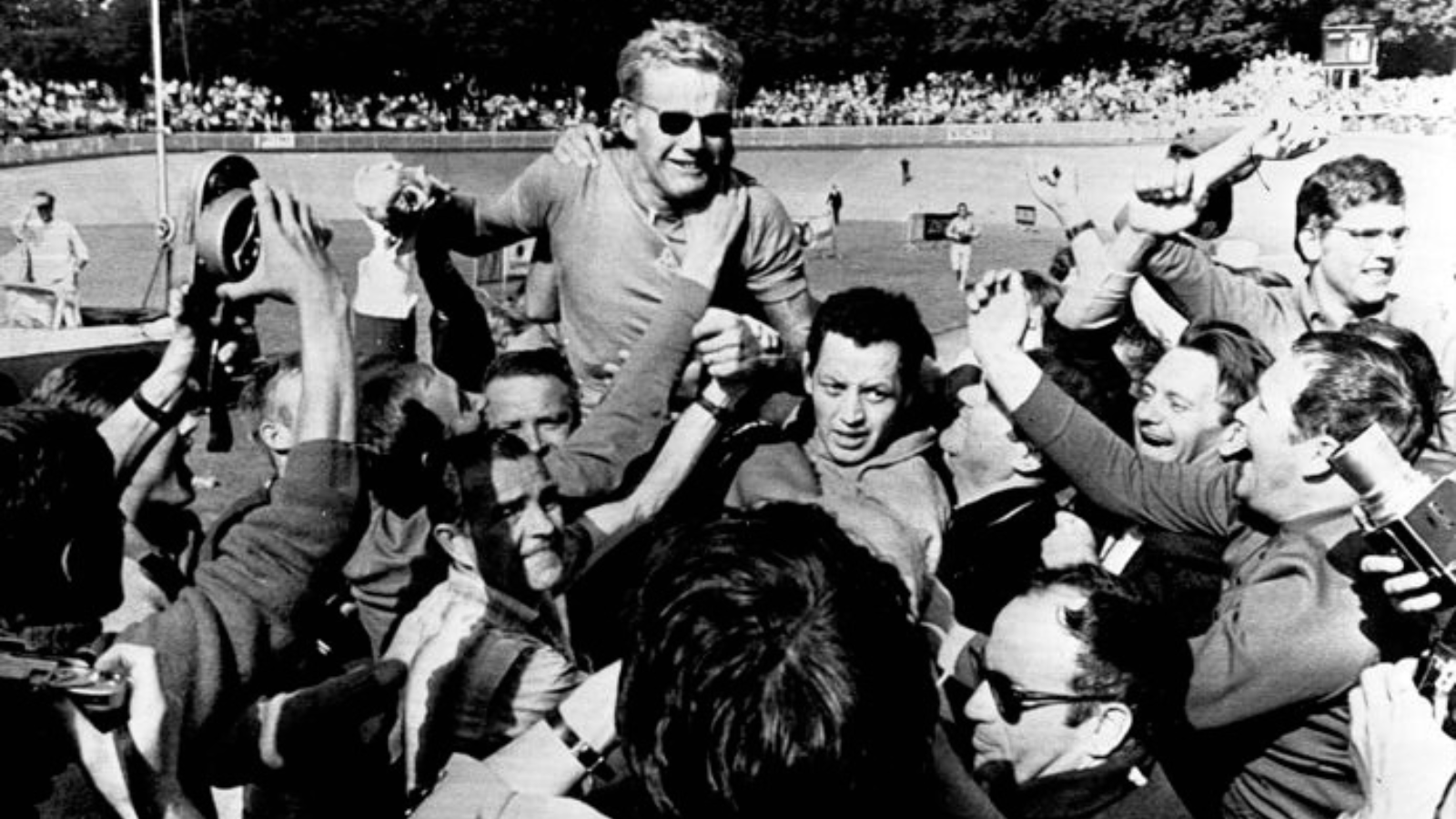Since the introduction of the yellow jersey in 1919, there were only two cyclists to win the race with taking the first place in the general classification in the last stage. Thus they didn't have the opportunity to wear the yellow jersey during that particular edition of Tour de France.
Jean Robic (1947)
After the penultimate stage Pierre Bambrilla was leading the general classification. The last stage was flat, but included a hill not far from its start, with a special prize for the cyclist, who crosses the top first. Jean Robic was unaware, that a breakaway group already climbed the hill, so he attacked. When he (4th in the GC before the stage) and Edouard Fachleitner (5th in the GC) dropped Brambilla and the second in GC Aldo Ronconi, and were having a gap already over 3 minutes, apparently, Robic, then a virtual leader of the race, told Fachleitner, that he would pay him 100 000 Francs, if he doesn't want to try the win the race, but helps Robic.
At the end, they finished with more than 13 minutes ahead of Bambrilla, and Jean Robic won the Tour de France.
Although in 1947 Robic won the Tour de France on the very last stage, thus he didn't had the opportunity to wear the yellow jersey, he still wore the famous kit for one day six years later, at the Tour de France in 1953.
Jan Janssen (1968)
Jan Janssen overal victory in 1968 was much more simplier than Robic's one.
The last stage of the Tour de France was a 55,2 km long individual time trial, and Janssen was a good time trialist.
Before the stage Janssen was in 3rd position in the general classificstion, only 16" behind the leader Herman van Springel. Janssen gained 54" on his rival in the last stage, which made him the winner of the race.
